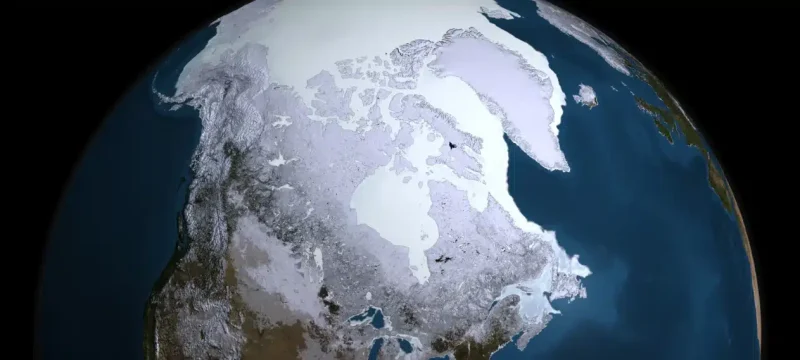For over 2.6 million years, our planet has been gripped by an Ice Age known as the Quaternary glaciation, interspersed with interglacial periods of relative warmth. Currently, we find ourselves in one such interglacial phase, which began around 12,000 years ago, bringing respite from the frigid ice-covered landscapes. The length of this interglacial period hinges on various factors, including changes in Earth’s orbit and the impact of both natural and human-induced global warming.
Read More: Melting Glaciers in Pakistan: A Race Against Time to Save Water Supply
Recent research by a team at the Potsdam Institute for Climate Impact Research in Germany has revealed a complex interplay between sunlight and atmospheric CO2, leading to natural global warming. Their findings indicate that this natural global warming alone would postpone the onset of the next Ice Age by at least 50,000 years.
However, the picture becomes more intricate when considering the added effect of man-made global warming, largely driven by human activities such as burning fossil fuels and deforestation. The combined impact of natural and human-induced global warming extends the delay significantly, pushing the emergence of the next Ice Age to a staggering 100,000 years.
The implications of this groundbreaking research are profound, offering crucial insights into the delicate balance of Earth’s climate and the profound influence of human activities on its trajectory. As the planet grapples with climate change challenges, understanding the factors that shape our climate becomes ever more critical.
The findings emphasize the need for urgent and collective action to address human-induced global warming and its potential consequences. Failure to curb greenhouse gas emissions and adopt sustainable practices could result in prolonged interglacial conditions, potentially altering the dynamics of ecosystems, sea levels, and weather patterns, with far-reaching implications for future generations.
While the delay of the next Ice Age may seem distant in geological timeframes, its ramifications demand immediate attention and responsible stewardship of the Earth’s resources. As nations strive to combat climate change, it is vital to embrace sustainable practices and global cooperation to safeguard our planet’s delicate equilibrium and preserve a habitable world for generations to come.









